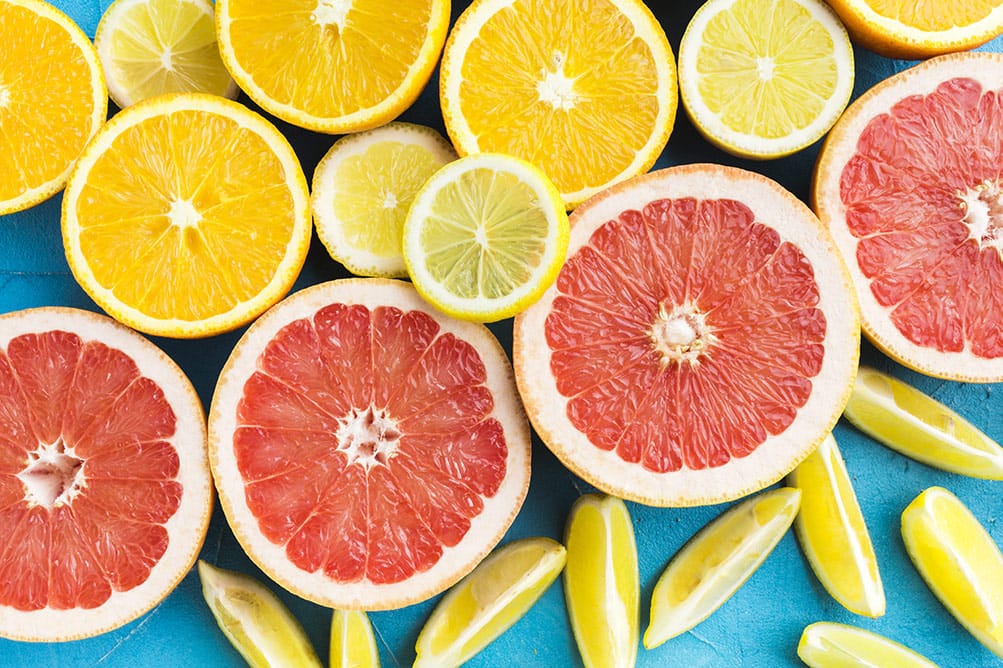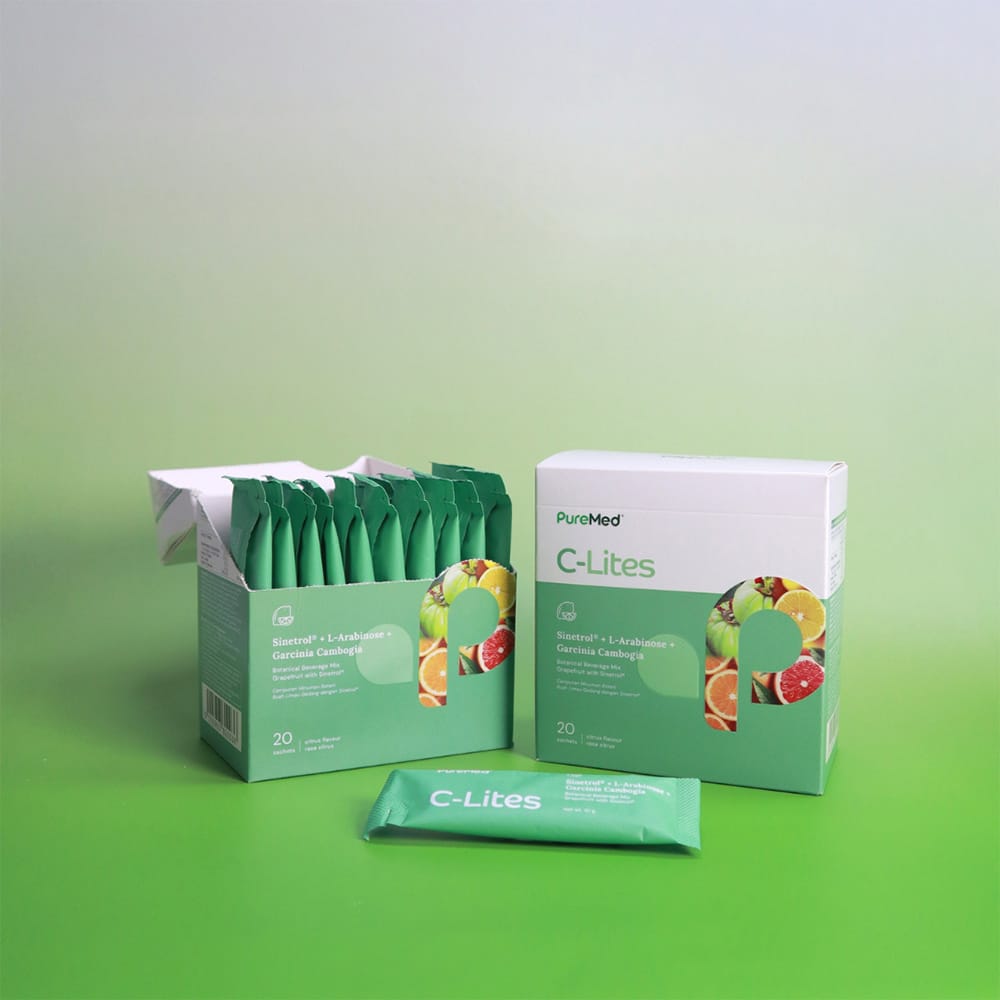No products in the cart.
Health Guides
Weight Management
Natural Ingredients For Weight Loss

Weight loss is something most of us struggle with, especially when food is a constant temptation. With new cafes and food spots popping up all the time, it feels like there’s always something new and delicious to chase after. But at the same time, in our busy, convenience-driven world, we’re moving less than ever. As a result, more and more people are dealing with being overweight or obese. With all our comfort food being just a few steps away, it’s easy to see how things can get off track. But there’s good news: nature provides us with powerful ingredients that can help support weight loss, making it easier for us to stay on track without sacrificing the joy of food. So let’s explore some of the natural ingredients for weight loss and how they can help us reach our goals.

Sinetrol: A Patented Mediterranean Weight Loss Citrus Blend

A Mix of Citrus fruits
- Sinetrol: A Fat-Burning Powerhouse
Sinetrol is a natural fat burner made from a mix of citrus extracts like bitter orange, blood orange, and grapefruit. These fruits have been shown to help with fat loss by boosting metabolism and kickstarting lipolysis – the process your body uses to break down fat. The best part? Sinetrol specifically targets stubborn belly fat, which is often the hardest to lose.
Studies have found that Sinetrol can help reduce body fat, especially when paired with regular exercise. In fact, studies showed that people using Sinetrol lost more body fat and had increased metabolic rate as compared to those who didn’t use it. [1] So, if you’re looking to speed up fat loss, this citrus-packed ingredient might be a game-changer.
- Natural Sugar Blockers: Taming Sugar Cravings
Sugar is one of the biggest culprits when it comes to weight gain, and cravings can make it feel nearly impossible to resist. That’s where natural sugar blockers come into play. Ingredients like L-arabinose can help block sugar absorption in the body. [2] This can help prevent spikes in blood sugar and insulin levels, both of which are linked to weight gain and fat storage. Because L-arabinose helps to regulate blood sugar levels, it can also help to stabilize your energy throughout the day, reducing the chances of experiencing energy crashes and cravings that often lead to overeating or reaching for sugary snacks.
- Appetite Control: Manage Your Hunger with Nature’s Help
One of the biggest struggles with weight loss is dealing with constant hunger. Luckily, there are natural ingredients that can help keep your appetite in check, like African wild mango, hoodia, and garcinia cambogia.
- African Wild Mango is known for its fat-burning and appetite-suppressing powers. Studies have shown it potentially reduces body fat by improving leptin sensitivity, the hormone that regulates hunger and energy expenditure. [3] By enhancing the body’s response to leptin, African Wild Mango may help reduce hunger, increase energy expenditure, and promote fat loss, making it an effective tool for weight management.
- Hoodia is a cactus-like plant traditionally used by indigenous people to suppress hunger during long hunting trips. Some studies suggest it may trick the brain into feeling full, which can help you eat less. [4]
- Garcinia Cambogia contains hydroxycitric acid (HCA), a compound that has been studied for its potential to support weight loss. Research suggests that HCA may help reduce appetite by increasing serotonin levels in the brain, which can lead to a feeling of fullness. [5] This appetite suppression can make it easier to maintain a calorie deficit, a key factor in weight loss.
- Gut Health and Satiety: Feeling Full Longer
A healthy gut is crucial for overall well-being and plays a huge role in managing your weight. Two ingredients that help with gut health and keeping you full longer are inulin and konjac.
- Inulin is a type of fiber found in foods like chicory root. It’s a prebiotic that supports healthy gut bacteria and helps you feel full, which can make it easier to reduce calorie intake without feeling deprived. It also helps balance blood sugar levels, which is key for weight management. [6]
- Konjac is a plant root packed with glucomannan, a soluble fiber that expands in your stomach and helps keep you feeling satisfied for longer. Studies show it can reduce calorie intake and help with weight loss, especially when paired with a healthy diet. [7]
- Energy Boosters: Keep Your Momentum Going
When you’re trying to lose weight and eating lesser, having enough energy to stay active is essential. That’s where natural energy boosters like guarana and L-carnitine come in handy.
- Guarana is a plant from the Amazon known for its energizing effects, thanks to its high caffeine content. [8] It’s also commonly found in energy drinks. It can give you an energy boost, improve physical performance, and even help with fat burning. If you’re aiming to stay energized and active throughout the day while maintaining a calorie deficit, Guarana could be your new best friend.
- L-Carnitine is an amino acid that helps transport fatty acids into your cells, where they can be burned for energy. It’s popular among athletes, but it also helps with fat oxidation and energy levels [9], making it a great addition to your weight loss routine.
Conclusion: Nature’s Weight Loss Helpers

Alt text: C-Lites: Natural Formulation for Weight Loss
While there’s no one-size-fits-all approach to weight loss, incorporating C-Lites which contains a comprehensive formulation of natural ingredients like Sinetrol, natural sugar blockers, appetite suppressants, and gut health promoters can certainly support our journey. Whether you’re looking to curb your appetite, boost your energy, or enhance fat burning, these ingredients can work synergistically with a healthy diet and regular exercise to help you achieve your goals.
That said, it’s always a good idea to talk to your healthcare provider before starting any new supplement, especially if you have underlying health conditions or are on medication. If you’re unsure what’s best for your personal health, our nutritionist team is here to help! Feel free to reach out to us for advice or to consult with a professional about your needs.
https://puremed.com.my/contact-us/
Reference:
- Fytexia. (n.d.). Fat loss for the long term: Sinetrol. Fytexia. https://www.fytexia.com/en/health-areas/metabolism-body-composition/fat-loss-for-the-long-term-sinetrol/
- Anderson, J. W., & Kildee, J. (1996). Effects of guarana on weight loss: A systematic review. PubMed. https://pubmed.ncbi.nlm.nih.gov/8931641/
- Caldic. (n.d.). Irvingia gabonensis (African wild mango) product information sheet. Caldic. Retrieved November 14, 2024, from https://magistralbr.caldic.com/storage/product-files/212183104.pdf
- Jain, S., & Singh, S. N. (2013). Metabolic effect of short term administration of Hoodia gordonii, an herbal appetite suppressant. South African Journal of Botany, 87, 1–6. https://doi.org/10.1016/j.sajb.2013.02.002
- Smith, T. L., Bounthavong, M., & Smith, M. A. (2013). Pharmacokinetics and pharmacodynamics of Garcinia cambogia extracts. Journal of Dietary Supplements, 10(3), 163-176. https://doi.org/10.3109/19390211.2013.786484
- Derosa, G., Maffioli, P., & D’Angelo, A. (2015). Effects of Garcinia cambogia on body weight: A systematic review and meta-analysis. Phytotherapy Research, 29(2), 187-194. https://doi.org/10.1002/ptr.5276
- Hession, M., Rolland, C., & Kushi, L. (2007). Experiences with three different fiber supplements in weight reduction. Obesity Reviews, 8(1), 1-7. https://doi.org/10.1111/j.1467-789X.2007.00330.x
- National Center for Biotechnology Information. (2020). Guarana (Paullinia cupana). In StatPearls [Internet]. Treasure Island (FL): StatPearls Publishing. Retrieved from https://www.ncbi.nlm.nih.gov/books/NBK589113/#:~:text=Guarana%20is%20derived%20from%20the,(1%25%20to%203%25).
- Zhang, J., Gao, X., Zhang, J., Li, X., & Li, H. (2020). Efficacy and safety of guarana (Paullinia cupana) for weight loss: A systematic review and meta-analysis of randomized controlled trials. PubMed. https://doi.org/10.1186/s13063-020-04079-7
Recommended Articles
Join Our Newsletter
Sign up now to receive the latest news and promotions.
Shop
Learn
Support
KKLIU: 2136/2022 © 2023 PureMed. All rights reserved.

